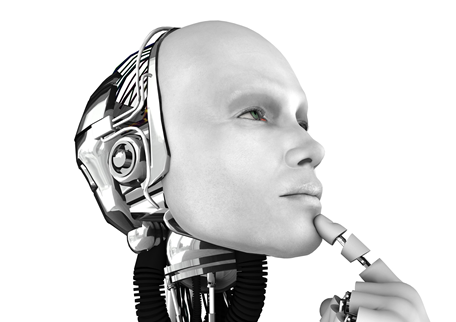Artificial intelligence has come a long way. This year, A.I. has written a pop song – and it’s not half bad either. This is, however, not the first time A.I. has demonstrated artificial creativity. In the past, both poetry and artwork has been produced by a machine. The ability to express creativity carries significant implications for artificial intelligence, as it goes hand in hand with the ability for A.I. to have independent thought – the ultimate, and most dangerous, advancement that can be made within artificial intelligence.

Customer Support
We’ve already got Google answering our voice command queries based on a set of complex algorithms. The search engine is continuously improving upon its ability to understand our queries and deliver the most relevant results. Apple’s Siri, meanwhile, is seen as the predecessor to a full-blown personal assistant. It feels like we’re just a few steps away from having our calls to customer service answered not by automated answering machines but by an interactive artificial intelligence which can help solve our problems and forward complaints. With recent advancements in the reading of facial expressions by A.I., it’s not such a stretch to imagine that robots working in customer support roles will one day be able to appear sympathetic in response to customers who are angry or upset.
Entertainment & Sports
Playing chess or online poker against a computer just isn’t the same thing as playing with a person. Whilst being able to play a computer opponent has certainly helped cure boredom of solo commuters or office workers, the experience is less satisfying without the level of psychology which is present in a human game. A.I could potentially offer a solution to that impediment, by learning to observe its human opponent and strategize more in line with how a human, not a machine, would strategize. If this were possible, chess champions could even use A.I. when practising their techniques and A.I robots could theoretically enter a poker tournament one day. What’s more, A.I. could play a big role in the oncoming virtual reality gaming phenomena. For a unique experience with each game, players want to interact with VR characters that are not bound by their programming, but can be unpredictably responsive to a human player’s behaviour.
Data Entry & Factory Work
As A.I. get smarter, we grow increasingly confident in leaving important but tedious tasks to machines. Administrative work such as data inputting, cost calculations and bookings can be monotonous – as can be the repetitive work required in some factories. An A.I. capable of carrying out these tasks and conducting thorough checks, possibly even with more efficiency than a human, would reduce the need for manpower. From a business perspective, investing in A.I. machines would be a no brainer, though some people might worry about the humans whom will no longer be needed for certain jobs.
Consultation
This year marked another extraordinary feat for artificial intelligence, namely the first ever A.I. Lawyer hired by a law firm. ‘Ross’ is the virtual attorney, who has been programmed with a database filled with laws and case histories. Ross can offer hypotheses to any questions asked about law, conduct extensive research and provide references, citations and sources to back up any of his responses. Ross also becomes more knowledgeable and effective the more experience he gains. If a learning A.I. can be used in a field as complex as law, then surely we will see similar A.I.s in other fields too..
Transport
Self driving cars are set to revolutionize the automobile industry, with experts claiming they will reduce accidents and make roads much safer. A degree of A.I. is incorporated into the design in order for the self-driving car to deal with weather changes, unpredicted obstacles and general on-route diversions. In 30 years’ time, we might have the luxury of grabbing a quick nap in our car after communicating to it where we want to go.
Whether you think A.I. marks the end of mankind in a doomsday-kind of way, or whether you simply think A.I. is the next step in the progression of civilization – there’s no denying that artificial intelligence will come to feature more predominantly in various industries over the next few decades, and will subsequently change many businesses and jobs forever.










Comments